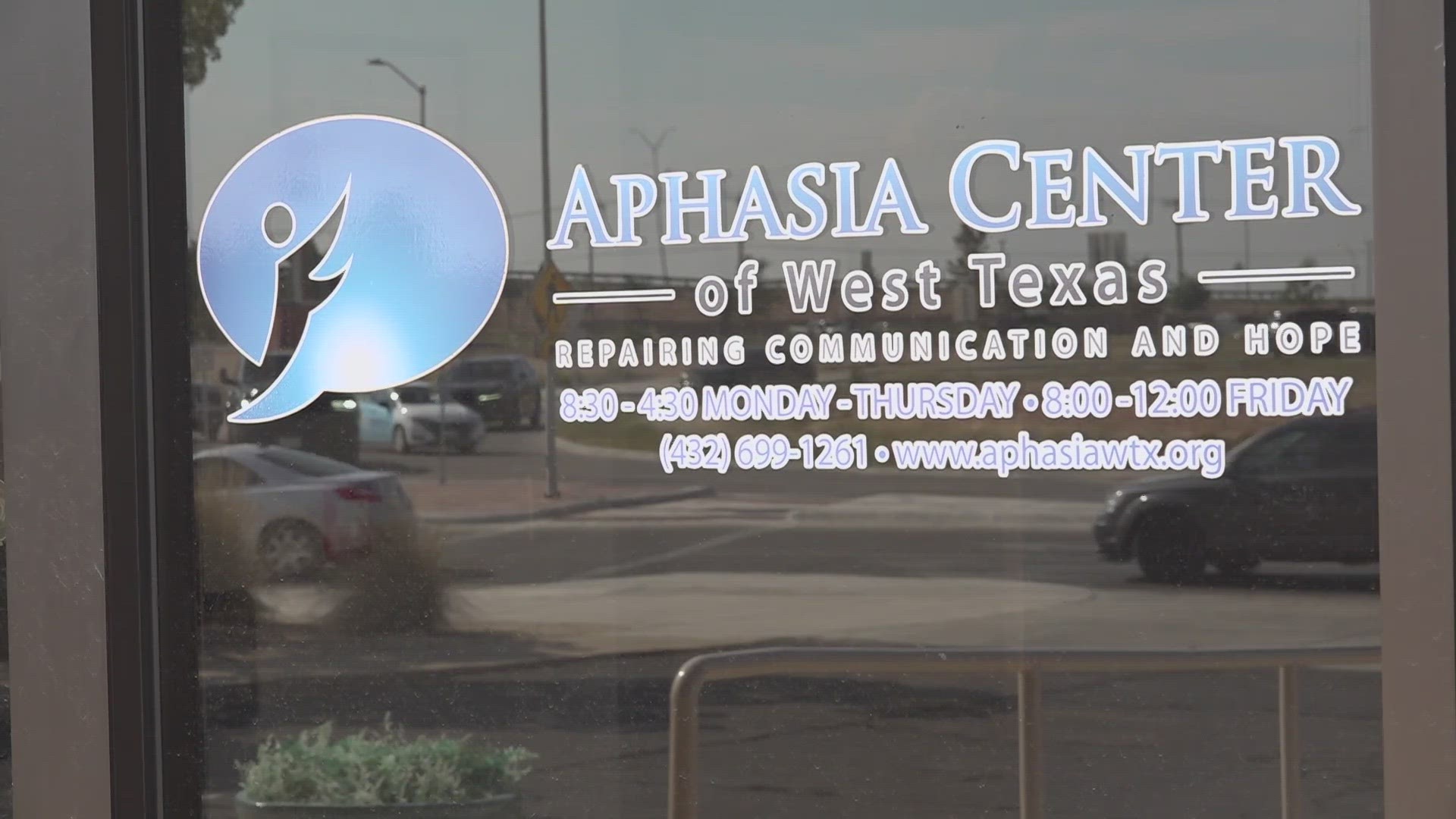MIDLAND, Texas — Aphasia is the loss of speech and language for a person due to injury to the language center in their brain. Their intellect is intact, but reading, writing and speaking difficulties mean finding new ways to communicate. June is National Aphasia Awareness Month, and the condition is treated in West Texas.
The Aphasia Center of West Texas has been around for 20 years and is still only the second in the entire State of Texas. They help those who have aphasia learn to live life successfully, and that includes one Midland man who was one of their earliest members.
Aphasia presents challenges for people that is similar to going abroad.
“If we went to a foreign country where we didn’t read, speak or write the language, we’d be the same person that we are here in the states but we would have a really hard time revealing our competence and maneuvering our world," said Kitty Binek, Executive Director of the Aphasia Center of West Texas.
The center creates community, communication and life for people like Gary Davis.
“Gary Davis was one of our earliest members to come to the aphasia center and this just kind of became his community, and so Gary has been here – he’s been with us almost this entire 20 years," said Binek.
After an aneurysm left Davis partially paralyzed and with aphasia, the aphasia center helped him and his family.
“They gave Gary a place to go where he could be with others and make friends that had the same concerns," said Ronnie Davis, Gary's wife.
“The aphasia center has allowed them to see other people with the same disabilities and that they can still have a life," said Teresa Davis Hansen, Gary and Ronnie's daughter. "It may not be the life that they would have had, but it’s just as good of a life.”
A life that was greatly impacted by the support given at the aphasia center.
“Much like you see wheelchair ramps to help people who are in a wheelchair access a building, we provide an adapted environment with communication ramps to help people with aphasia successfully communicate," said Binek.
You don’t have to go abroad to understand aphasia. Help is local in West Texas.
“If you can teach them certain tools and techniques to be able to get their message out and you can teach their conversation partners those same tools, then regardless of how much of their speech and language they get back, you’ve given them their life back, and now that’s, that’s really something," said Binek.
Binek noted that June gives the center a chance to help spread the word about aphasia and the services they provide. For those who suffer from aphasia -- or know a loved one that does -- they can go to the Aphasia Center of West Texas in Midland and the center will provide assistance for as long as someone wants it.

